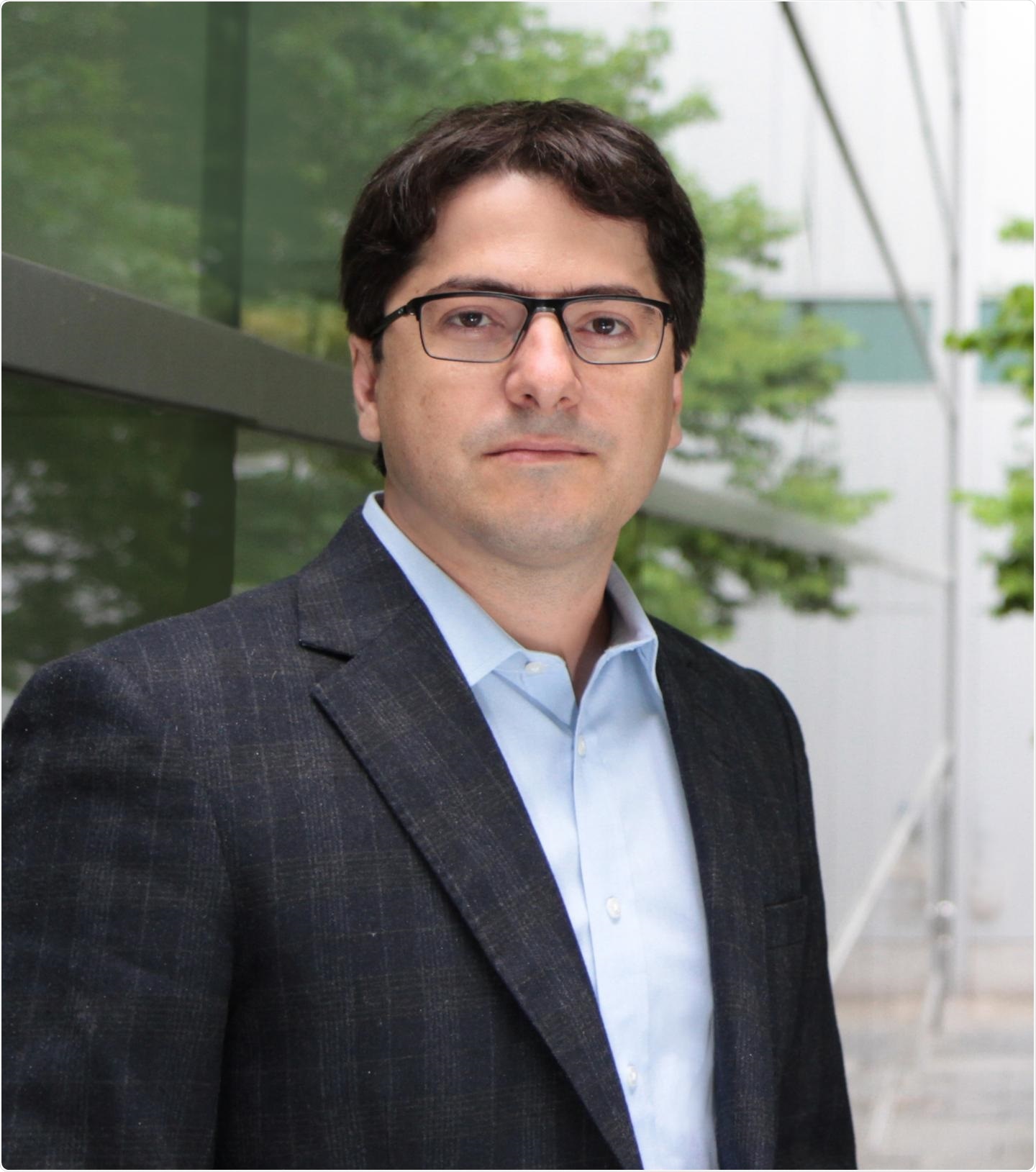Developing “super soldiers” of particular white blood cells to promote an anti-tumor reaction has been demonstrated in a series of well-designed experiments by scientists of Princess Margaret.

Princess Margaret Senior Scientist, Dr. Daniel De Carvalho and team transformed immune killer T-cells into “super soldiers” by boosting their ability to kill cancer cells. Image Credit: University Health Network StRIDe Team.
A study, headed by Ph.D. candidate Helen Loo Yau, Post-doctoral fellow Dr. Emma Bell, and Senior Scientist Dr. Daniel D. De Carvalho, explained a DNA altering epigenetic therapy that can change immune killer T-cells into “super soldiers” by promoting their capability to destroy tumor cells.
The discoveries could possibly improve immunotherapy, a novel paradigm in cancer treatment that is presently effective for a small number of cancer patients. While a few patients respond well to immunotherapy, with their tumors significantly reducing in size, others respond only partly or not at all.
Clinicians and researchers worldwide are working to interpret why only helps certain patients. benefit from immunotherapy. The study has been published in the Molecular Cell journal on February 19th, 2021.
Our goal for the future is to use this strategy combined with other immunotherapies to enhance anti-tumor immunity. We imagine a future clinical trial where we collect T-cells from the patient for treatment with epigenetic therapy in the lab. This could expand the army of cancer killing cells effectively creating an ‘army of super soldiers.’ These cells can then be re-infused into the patient, to potentially enhance their built-in immune response to the tumour.”
Dr De Carvalho, Associate Professor, Department of Medical Biophysics, University of Toronto
The laboratory of Dr De Carvalho first noted an increase in the infiltration of T-cells in mouse tumors treated with epigenetic therapy. When the lab eliminated the T-cells, the treatment stopped working, indicating that the T-cells were playing a key role in the treatment success.
Fascinated by this discovery, the team set out to apply this epigenetic DNA modifying therapy immediately to T-cells in the laboratory. The team separated T-cells from healthy human donors, and also from patients suffering from melanoma, ovarian, breast, and colorectal cancer. The researchers’ results demonstrated that epigenetic therapy improved the cancer-killing ability of T-cells.
Epigenetics operates through the removal or addition of chemical “tags” to DNA. Similar to detachable post-it notes, these tags help determine which genes can be switched on or off. In other words, one can modify a cell function employing medications that alter these epigenetic tags.
The team essentially observed that an available chemotherapy drug eliminated certain epigenetic tags that were holding genes off in a subset of crucial genes in T-cells. Eliminating these tags again turned on these genes and acted to “turbocharge” the T-cells to turn into more effective killing machines.
The team found two specific genes that were stimulated by the epigenetic therapy and which account for the T-cells to become better at destroying the tumor cells.
A next-generation technology, called high-dimensional, single-cell mass cytometry analyses, profiles individual cells and drug response. It showed an increase in the numbers of perforin proteins and granzyme, which are used by T-cells to perform their killing function.
When released, like a deadly swat team, the perforin protein can punch holes in the membrane of the cell to enable granzymes to penetrate a cancerous or infected cell to complete the job of destroying it.
The T-cells became a sort of ‘super soldiers’, with highly activated molecules—with bigger and better weapons— to destroy the cancer cells.”
Dr De Carvalho, Associate Professor, Department of Medical Biophysics, University of Toronto
Dr De Carvalho further added that the article that comprehensively explains the molecular mechanism of how the process takes place.
A major innovation in the article is employing epigenetic therapy to affect the gene behavior in the T-cell. Additional studies on epigenetic therapies target their impact on tumor cells. But this article looks at how the human immune cells react, offering an insight into how the anti-tumor activity of the human immune systems can be boosted.
The emerging area of epigenetic therapy aims to influence genetic activity without really altering the DNA sequence—rendering this a fascinating therapeutic avenue of cancer research.
Genetic manipulation of immune cells for treatment is not trivial experimentally. It's even more complicated and expensive in clinical implementation. Our work sets the stage for clinical investigations combining epigenetics with other immunotherapy strategies.”
Dr De Carvalho, Associate Professor, Department of Medical Biophysics, University of Toronto
Source:
Journal reference:
Yau, H. L., et al. (2021) DNA hypomethylating agents increase activation and cytolytic activity of CD8+ T cells. Molecular Cell. doi.org/10.1016/j.molcel.2021.01.038.